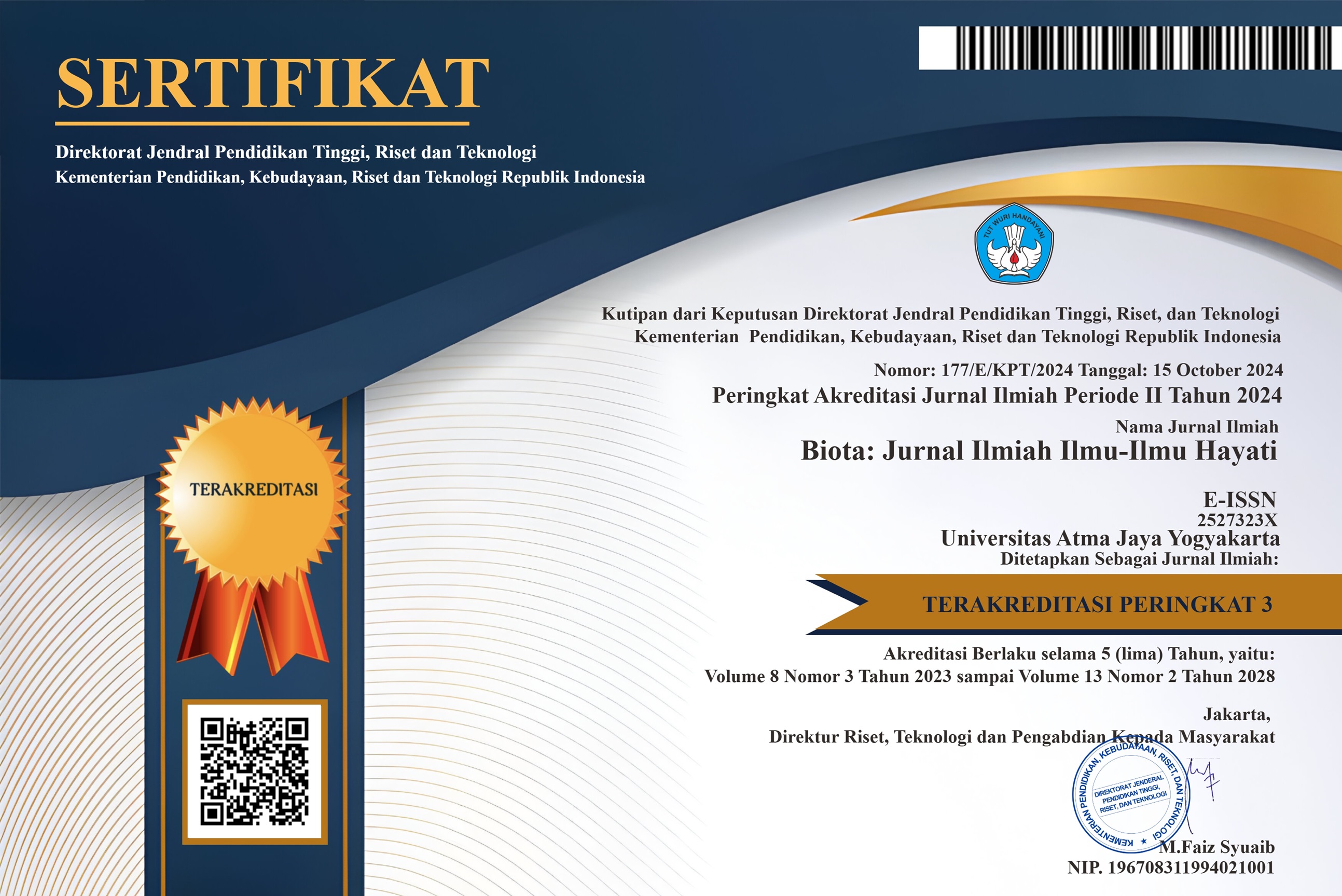Pengaruh Cara Pengolahan terhadapMutu Bakteriologis Ikan Tongkol (Euthynnus affinis) Pindang Siap Santap
DOI:
https://doi.org/10.24002/biota.v13i1.651Abstract
The objectiveof this present research was toknowthe influence ofvarious way ofcooking on bacteriologicalquality of ready-to-eat salted little tunafish (Euthynnus
affinis).Previousstudyhas shown thatbacteriological quality ofsaltedtunafishfrom
markets in Yogyakarta were not fulfill the requirements based on SNI 01-2717-1992.
It was shown that the aerobic plate countswere high, i.e.2.4 x 10
5
– 5.27 x 10
7
CFU/g.
Coliformcountranged from < 2.5 x 10
1
- > 6.5 x 10
6
CFU/g.Fromthe20samples
observed, only 1 sample did not contain V. parahaemolyticus and 4 samples were
negative from Salmonella. Therefore,it needs to bestudied whether thevarious way
ofcookingsuch asfrying, fryingwith flour, fryingwith egg and fryingwith chili sauce
were effectivein removing any of the groups of bacteria examined from saltedlittle
tuna fish sample. The bacterial groups examined as indicator of quality were
Staphylococcus aureus, Coliform, Salmonellaand Vibrio parahaemolyticus. The aerobic
plate counts were also taken. The result showed that the various way of cooking were
effective in reducing the aerobic plate counts, S. aureusand Coliform. Frying with
chili sauce was the best cookingprocedure because it can reduced the highest number
of aerobic plate counts, S.aureusand Coliform. Salmonellaand V. parahaemolyticus
were not detected in all cooking samples.
Downloads
Published
15-07-2016
How to Cite
Exsyupransia Mursyanti, E. P. (2016). Pengaruh Cara Pengolahan terhadapMutu Bakteriologis Ikan Tongkol (Euthynnus affinis) Pindang Siap Santap. Biota : Jurnal Ilmiah Ilmu-Ilmu Hayati, 13(1), 8–13. https://doi.org/10.24002/biota.v13i1.651
Issue
Section
Articles
License
Authors who publish with Biota : Jurnal Ilmiah Ilmu-Ilmu Hayati agree to the following terms:
- Authors retain copyright and grant the Biota : Jurnal Ilmiah Ilmu-Ilmu Hayati right of first publication. Licensed under a Creative Commons Attribution-NonCommercial 4.0 International License that allows others to share the work with an acknowledgment of the work's authorship and initial publication in this journal.
- Authors are able to enter into separate, additional contractual arrangements for the non-exclusive distribution of the journal's published version of the work (e.g., post it to an institutional repository or publish it in a book), with an acknowledgment of its initial publication in Biota : Jurnal Ilmiah Ilmu-Ilmu Hayati, and as long as Author is not used for commercial purposes.












